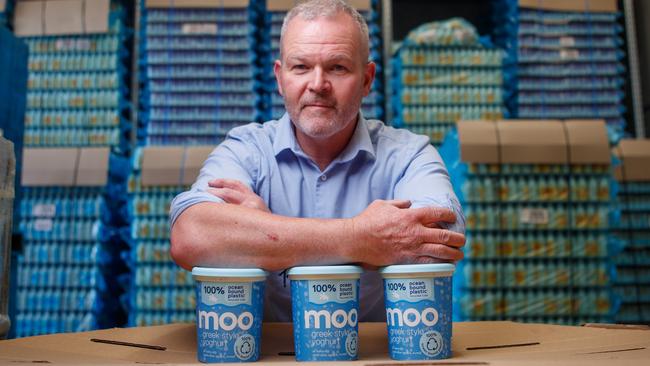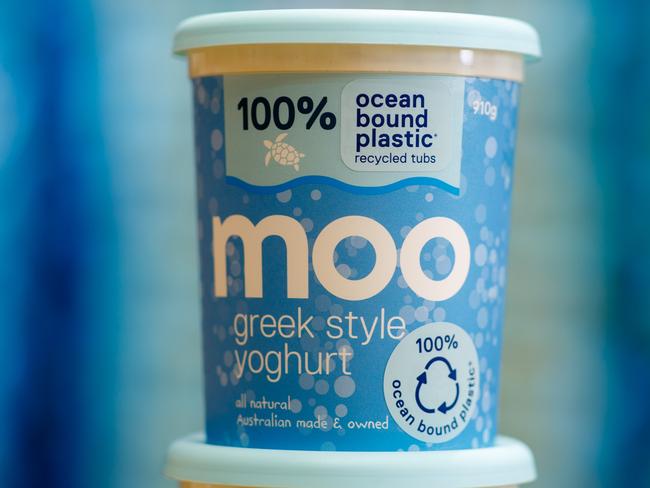Greenwashing accusations make for ‘wrong incentive structure’ on going green
When Moo Yoghurt’s Mick Sanders opted for a greener option to package a line of yoghurt, he never thought one word would cause so much trouble.

Mick Sanders never anticipated one word could cause so much trouble when he opted to ditch newly made plastic for a greener option to package yoghurt.
“We were trying to do a good thing,” he said. “How do we do our part here to make a difference?”
Mr Sanders and his wife Sally own and operate Moo Premium Foods, which mostly makes yoghurt to supply retailers. They made the choice to change the packaging on one line of their product, from newly made virgin plastic to “ocean-bound” plastic. As the term suggests, it’s plastic that otherwise would have ended up in the ocean.
The packaging said “ocean plastic” at the front of the carton and “ocean-bound plastic” on the back. Months later came the reprisals.
“An environmental group said, ‘oh, that’s greenwashing’,” Mr Sanders said.
“Greenwashing” is when a person or organisation tries to burnish their environmental credentials in a dishonest way.
The packaging was caught up in an ACCC greenwashing investigation that found Moo “likely contravened Australian Consumer Law”.
An ACCC media release said Moo committed to correcting the packaging and publishing corrective notices on its website and social media channels.
A search on Facebook of “Moo yoghurt” found posts sharing news of this ACCC decision, including environmental non-profit Tangaroa Blue and several online consumer publications.
Mr Sanders said this had stirred up fear among other manufacturers to adopt greener sources of plastic, on top of cost concerns.
“I’m just going to stick with normal,” he said others had told him. “I’m going to just keep making normal plastic and increasing the amount of plastic that’s being used, for fear of any retribution.
“And I think that’s a bit sad, because we know we’re never going to make any real environmental impact or any significant change to the way people think when manufacturers are too scared to do anything about it.”

Mr Sanders said “retribution” came more from social media posts rather than the ACCC.
“What we’ve done as a result of the ACCC process is just put a little sticker over the top that says ocean-bound plastic on the front label,” he said. “We’re happy to do that. We don’t have any issue at all doing that.
“From a social media point of view … from a brand point of view, it’s really detrimental. They’re trying to make it sensationalised.”
Nonetheless, Mr Sanders said he and his wife were “very firm believers that we need to do our part”.
“It’s the correct thing to do,” he said. “The consumer is correct and they do want sustainable options, and companies like us need to play our part.
“I’m 50 now, I don’t want to get to 80 and think, ‘oh jeez, in all of those years I probably should have done a bit more’.”






To join the conversation, please log in. Don't have an account? Register
Join the conversation, you are commenting as Logout